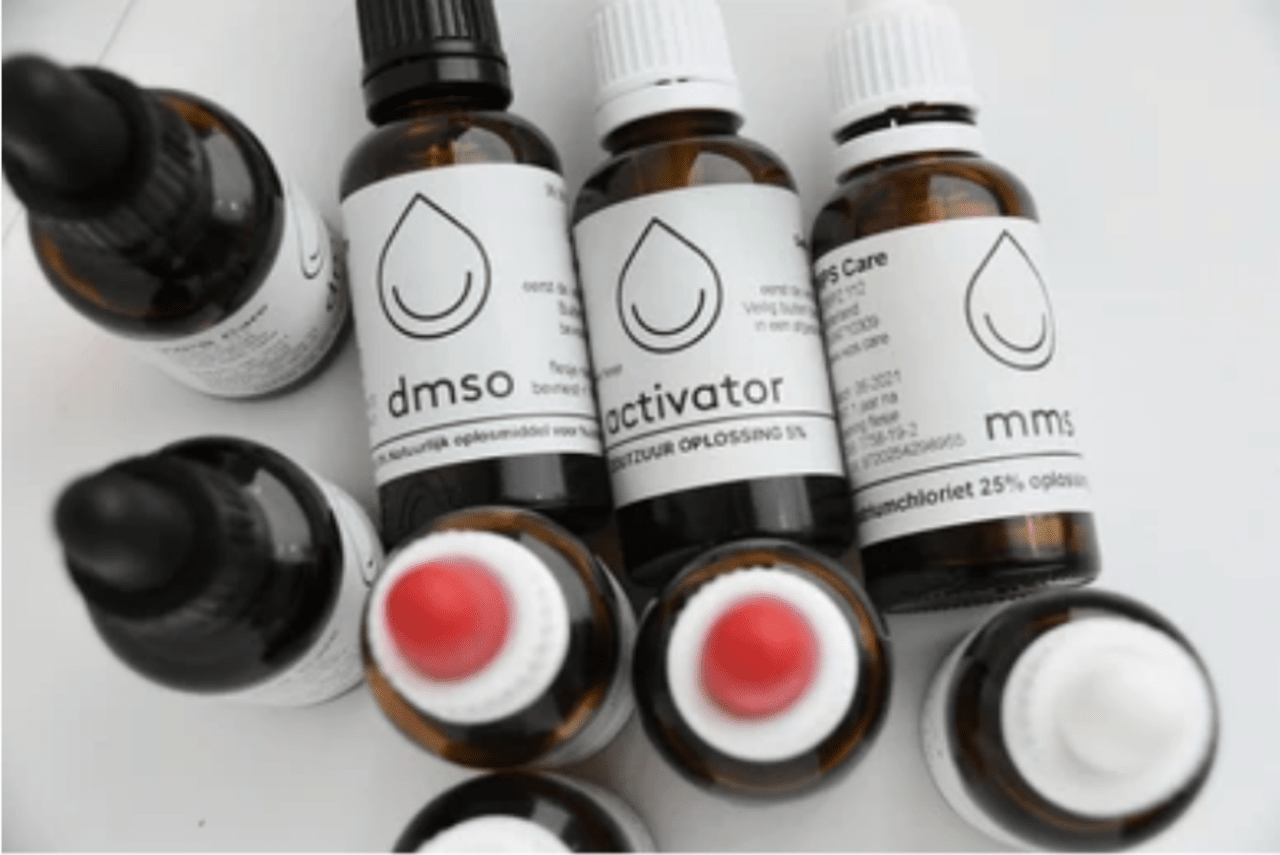DMSO has been used for decades to treat a rare condition. This treatment prevents oxidative stress and reduces brain swelling, which improves blood supply. When treated with DMSO immediately after suffering a head injury, it has been found that the brain has reduced swelling within minutes. Thus, there is an urgent need to find better treatment options for those affected by these conditions.
Despite decades of research, thousands of studies and powerful anti-inflammatory properties, dimethyl sulfoxide (DMSO) remains virtually unknown to medical professionals and the public. This inexpensive compound has been shown to relieve painful musculoskeletal and urinary conditions, fight Alzheimer’s disease and cancer, and even fight brain trauma injuries that afflict more than 50,000 Americans yearly. Unfortunately, the FDA has hampered its widespread acceptance by their allies in the pharmaceutical industry.
DMSO: Lesser Studied, More Ignored!
Dimethyl sulfoxide is an analgesic and anti-inflammatory compound that holds promise in managing many debilitating health conditions. It has been approved for use by the FDA to treat interstitial cystitis or chronic bladder wall inflammation. Still, its use for other therapeutic purposes has been suppressed by bureaucratic ineptitude and pharmaceutical industry lobbying. A recent study highlights DMSO’s ability to manage the effects of head injury. This also renewed interest in its many potential therapeutic applications.
Treating Head Trauma
Professional experts who study DMSO maintain that it is an effective treatment for closed head trauma and is efficient for other conditions like embolic stroke and spinal cord injuries. Closed head trauma is a severe trauma from a blunt injury where the head hasn’t been opened. With this type of injury, the brain is prone to swelling against the skull’s hard bone, causing the death of vital brain cells [1]. It also suppresses the blood supply & oxygenation, causing a significant shift in electrolytes within the brain.
Research conducted from 1978 to 1982 indicated that the swelling of the brain could be reduced within five minutes when an intravenous solution of dimethyl sulfoxide was administered after a head injury. No other treatment comes close to acting so quickly. The brain continued to swell in patients given other commonly used therapeutic agents such as intravenous barbiturates, which showed no effectiveness at reducing swelling. However, the FDA hasn’t approved any new pharmacological agent for treating traumatic brain injury in more than three decades. With so much attention focused on treating severely injured soldiers returning home from war, studies are leading the charge to gain FDA approval for DMSO to treat this type of injury.”
DMSO has the potential to be the pharmacologic treatment of choice for traumatic brain injuries from combat. He says that there’s nothing that comes close to it in efficacy [3]. The company he heads recently sponsored a clinical trial on traumatic brain injury patients in Europe, which gave encouraging results: An 80% survival rate (about twice the historical rate of 30-40%) and 70% of patients experiencing a favourable outcome (far higher than the historical rate of less than 10%).
Potential Medical Applications of DMSOs:
Hundreds of laboratory studies have documented the pharmacological actions [2] and efficacy of DMSO. DMSO yields promising results in treating the following conditions:
Alzheimer’s disease: It dissolves amyloids and invariably leads to the functional loss and eventual death of brain cell arthritis – DMSO shows value in reducing pain and inflammation in osteoarthritis, rheumatoid arthritis, and possibly gout. DMSO has been shown to retard the development of atherosclerosis in mice and can reduce cholesterol levels in animals when fed a high-cholesterol diet. A study by Stephen B. Strum, MD, showed that applying DMSO reduced the damaging effects of anthracycline drugs exuding into surrounding tissues.
Fibromyalgia: When treated with DMSO, fibromyalgia patients experienced benefits with no side effects. This is due to pharmacological actions of DMSO such as free radical scavenging, analgesia, anti-inflammation and softening scar tissue, and healing stimulation.
Herpes: Researchers have found that using DMSO to enhance the penetration of alpha-interferon ointment in treating herpes helps reduce pain.
Interstitial cystitis: The FDA-approved palliative treatment for this chronic inflammatory condition is the instillation of DMSO in the urinary bladder.
Malignancy: Studies concluded DMSO is responsible for exerting a significant survival advantage in gastric cancer.
Plastic surgery adjunct: DMSO aids healing and reduces pain and swelling.
Prostatitis: When DMSO was injected into the prostatic urethra, significant symptomatic relief occurred.
Reflex sympathetic dystrophy: DMSO helps relieve pain in this condition, where an autonomic nervous system disorder causes pain and the extremities. In some countries like Holland, a physician is breaking the law if he does not prescribe topical DMSO for reflex sympathetic dystrophy.
Scleroderma: Researchers recently discovered that topical application of a dimethyl sulfoxide solution produced anti-inflammatory effects while increasing blood flow to the skin.
Spinal cord injury: A recent study shows that administering DMSO within the first 45-60 minutes after injury results in a much higher recovery rate than those not receiving DMSO. This is an area for future studies to explore, as there are fewer patients with severe spinal cord injuries in long-term care facilities than in hospital settings.
Ulcerative colitis: Some studies found that orally administered DMSO has been shown to improve the condition of some patients.
Early DMSO Research Shows Promise
Early studies showed proven results on how DMSO rapidly penetrates the skin and quickly relieves inflammation & pain associated with injuries. Dimethyl sulfoxide, an inexpensive compound primarily ignored by the medical community, holds great promise in treating various health conditions. Originally discovered as a by-product of paper manufacturing, DMSO has demonstrated remarkable anti-inflammatory and analgesic properties. It is most promising for treating severe closed head trauma, relieving brain swelling and restoring blood flow in the post-injury phase. Research suggests further applications of DMSO to fight diseases like arthritis, fibromyalgia and ulcerative colitis [4].
FDA and the halted DMSO Research
The FDA halted all studies of DMSO in 1965 despite data in hand from the US that proved its safety and effectiveness. Critics contend that the agency overreacted, considering how unconcerned it appears today with deaths from both trials and approved pharmaceuticals. The role of DMSO in treating central nervous system injuries led to years of controversy, during which people doubted the compound’s safety. It was considered a snake-oil medicine for decades; it sounded too good to be true.
Since DMSO was knocked off track, it had been a battle for researchers to get FDA approval of DMSO for any use.
In the early 1970s, pressure on the FDA led to the commissioning of an external review of DMSO by the National Academy of Sciences. The NAS published many findings in 1972 and concluded that DMSO was a promising, probably safe, and effective agent. This did not impress the FDA; however, it was a minor success as the agency approved DMSO to treat interstitial cystitis in 1978.
Ending Note:
An obstacle to DMSO’s widespread d use is drug companies’ lack of potential profitability. There is more need for medical literature that comes up with more scientific evidence about or referring to DMSO over penicillin, cortisone, or aspirin. DMSO has immense potential and can be mixed with other substances [5].
Despite its long and frustrating history, DMSO is looked on quite favourably as a future of medicine and treatments, as more evidence of its safety and efficacy accumulates—particularly as new investigations explore its use in treating different rare conditions!
References and Sources:
- https://www.ncbi.nlm.nih.gov/pmc/articles/PMC6420634/
- https://pubmed.ncbi.nlm.nih.gov/3916302/
- https://www.ncbi.nlm.nih.gov/pmc/articles/PMC6420634/
- https://pubmed.ncbi.nlm.nih.gov/3916302/
- https://www.ncbi.nlm.nih.gov/pmc/articles/PMC3460663/
Love and Light
The Healing Oracle Team
Please join our growing numbers on MeWe: Healing Oracle
Also join us on Twitter | YouTube
Global Petition
Please sign our global petition against enforced vaccinations The intention of this petition is to present 5 million signatures to each President, Prime Minister, Health Minister and heads of state worldwide.
Vaccines are a global problem and need to be tackled on a global level.
If we stand as one, we have a chance of saving the children of the future.

